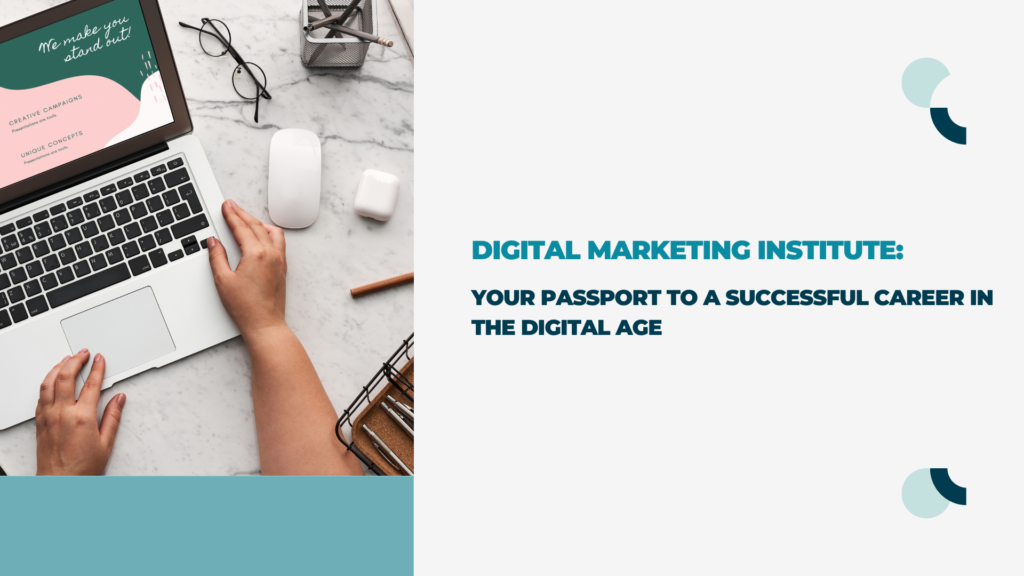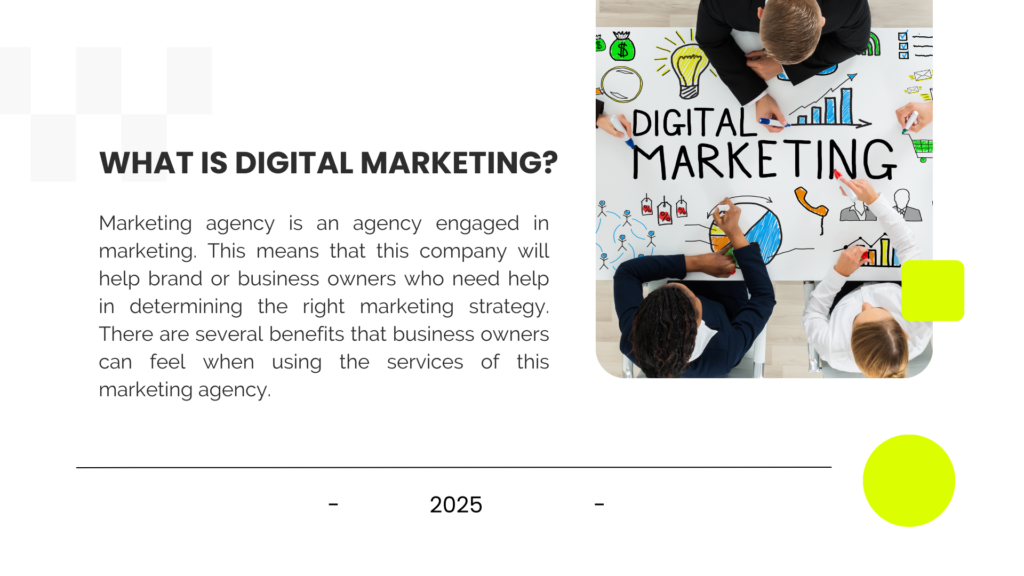




The world is becoming digital. The Internet world is now fast becoming an alternative platform for businesses, and digital marketing forms part of the strategy in reaching wider audiences and driving growth. This gives a huge market for skilled digital marketers; therefore, a career in digital marketing is one of the most promising opportunities today. However, it is only through the right digital marketing institute that one can acquire the skills and knowledge to survive in this fast-paced world.
We know that IICE, which is the Indian Institute of Commerce and Economics, needs industry-relevant training and hands-on experience in aspiring digital marketers. So, this blog will cover what makes a digital marketing institute the best choice for your career, what a comprehensive digital marketing course should include, how to evaluate digital marketing course fees, and how to select the right course for your needs.

Digital marketing is an advertisement of any products and services via digital channels, platforms, and technologies. To say it in brief, it comprises all websites, social media networks, search engines, email, and mobile applications.
Data-driven techniques in the case of digital marketing are measurable, targeted, and effective, as compared to traditional marketing. Some of its strategies are as follows:
Search Engine Optimization (SEO)
Pay-Per-Click (PPC) Advertising
Social Media Marketing (SMM)
Email Marketing
Content Marketing
Affiliate Marketing
Influencer Marketing
Mobile Marketing
Online Reputation Management (ORM)
The digital marketing scope, as mentioned above, is huge; all business sizes require professionals to traffic, leads generated, and that lead conversion becomes a customer.
One can self-study, but the benefits of joining a digital marketing institute are for serious-minded people who wish to start their career in this field. Here’s why you should join a digital marketing institute:
1. Systematic Learning Plan
It has to be comprehensive with proper curriculum coverage of all digital-marketing faces in a systematic manner so that it can help you gather all-rounded skills for all facets of digital marketing-right from SEO to social media, from content marketing to PPC.
2. Industry Experts Trainers
It is a fast-evolving field of digital marketing, and one should keep himself updated with the latest trends and techniques. You will get expert trainers in a digital marketing institute who would have real-world industry experience and can give valuable insights. They will also enable you to apply theoretical knowledge to real-life business cases.
3. Practical Experience
The best digital marketing institutes allow the students to work on live projects. Live projects increase exposure to practical activities, enhance your learning, make you confident, and get you job-ready by the end of the course.
4. Latest Tools and Technologies Exposure
Digital marketing is highly dependent on many tools and platforms, like Google Analytics, SEMrush, Hootsuite, and a lot more. You will learn about the newest tools at any good institute. That way, you will learn about the most relevant resources.
5. Networking Opportunities
The industry of digital marketing thrives upon collaboration. Networking scope is there in the institutes of digital marketing. You’ll be able to interact with fellow students, trainers, and industry people during the course. The networking can work for future employment, collaboration, and partnerships opportunities.
6. Career Support After Course
A good digital marketing institute would be one that provides after-course support for career enhancement. This typically would include job placement, resume formation, and interviewing training.

Now is the time going for the digital marketing institute where an idea may be gotten from which one can actually gain all this in terms of packages, whereby for all intents and purposes, in a perfect package of any extensive program, this aspect of course needs to be available along with top-notch course packages.
1. Course Introduction on Digital Marketing
It basically covers the introduction to digital marketing, including the history, importance, and scope of online marketing. One will also understand the various channels of digital and their contribution to a business’s marketing strategy.
2. Search Engine Optimization (SEO)
This perhaps is the most critical part of digital marketing, which includes on-page and off-page SEO techniques, keyword research, link building, technical SEO, analytics of SEO. You will learn how to perform content optimization in order to secure higher rankings within SERPs.
3. PPC Advertising
You will learn the different paid models in this module, especially Google Ads and Bing Ads. Topics that include setting up campaigns, the strategies on how to bid, ad copywriting, keyword targeting, budget management, and tracking performance.
4. Social Media Marketing (SMM)
This module focuses on promoting businesses on various social media platforms, including Facebook, Instagram, Twitter, LinkedIn, and others. You’ll learn how to create engaging content, run targeted ads, and use analytics to measure social media performance.
5. Email Marketing
E-Mail marketing is one of the best methods of digital marketing. Learn about creating and managing your email lists, crafting campaigns, and interpreting campaign results to get better at conversions.
6. Content Marketing
Content is the king of the digital world. In this module, you would learn how to create useful, relevant, and interesting content for use on different types of digital channels. This module would let you know about content strategy, blog writing, video marketing, and content in the setting of a marketing agenda.
7. Affiliate Marketing
Affiliate marketing is allowing third parties to market the service for a business in exchange for a commission. This course teaches affiliate marketing, how to set up an affiliate program, and how to monitor performance.
8. ORM
ORM is the ability to survey, manage one’s reputation online in the age of social media and online reviews.
9. Web Analytics and Data Analysis
In order to understand what’s happening within the campaigns are undergoing in the digital media, one must know how its performance goes. For this module, you’ll find out how you can use Google Analytics in understanding traffic, users’ behavior and even success that campaigns make with it.
The correct institute for a digital marketing institute course is very hard to select, but some of the factors guaranteeing good training are the following:
1. Experience of Trainers
Those institutes should be chosen in which there are more trainers experienced in the digital marketing industry. They should be aware not only of the topics but also to express complicated ideas in a straightforward manner.
2. Content of Training Courses
The course content is rich and still at par with the current industry trends. A good digital marketing institute will regularly update its curriculum to match the evolving nature of the industry.
3. Practical Exposure
Choose an institute where you will learn hands-on exposure to real-life projects. These practical exposures actually help the learner apply his newfound knowledge in controlled yet challenging real-life conditions.
4. Placement Support
A good institute will support job placements or at least guide you regarding digital marketing placement opportunities. So, always ask your institute how many students get employed right after graduation with them.
5. Reviews and Testimonials
Find out the institution’s reputation by looking for the reviews and testimonials of previous students. Positive words will boost up your confidence on the standard of training.
6. Course Fee
Last but not least, the fee for the digital marketing course. Compare the institutes and find out what you get at what price.

The fees of the digital marketing course are based on institutes, duration of the course, and the level of training offered. On average, a typical digital marketing course fee varies between ₹20,000 to ₹1,00,000 or more, depending on various factors.
Some of the factors that come into play when one evaluates digital marketing course fees are as follows.
1. Duration of the Course
The main determinant will be the duration of the course. The shorter ones, such as certification courses, will be less costly, while a diploma or postgraduate program will be rather pricey.
2. Course Level
Beginner courses are cheaper than professional or advanced level courses. For a beginner in digital marketing, a basic program is going to cost less.
3. Learning Mode
Classroom training is usually more expensive than online or hybrid learning models. However, online courses are flexible and often cheaper.
4. Extra Charges
Some institutes charge the study material, exam, and certification fees in the course fee, while others charge extra. Confirm what is included in the fee before making a decision.
5. Reputation and Placement Record
Institutes with good reputation, experience faculty, and successful placement records are expensive but worth the price.
Career in Digital Marketing has very promising prospects. You can join the right digital marketing institute to get all the skills and knowledge that one needs to pursue in this dynamic field. IICE provides training, experienced faculty, and practical experience that will make you an industry-ready digital marketing professional. Decide on the course based on your career goals, cross-check the fees, and then invest in your future by taking a step forward to success in your digital marketing career.